So, you’re in the market for a caravan and after checking out caravan and camping sales or a caravan show you are in overwhelm!! At the moment there are over 14,000 caravans, RV’s and camper trailers for sale on caravanandcampingsales.com.au. This blog will give you tips on buying your next caravan and narrow that list down from 14,000 to that special 1.
Like any purchase decision purchasing a caravan is about understanding your needs and matching your criteria (including budget), conducting research and understanding the marketplace. Let’s get into it!
As you can see from our image above there are so many components to a caravan, and it doesn’t even show the chassis, roof or A-frame!
Consider Your Tow Vehicle
In the expanse of Australia where trips can be thousands of kilometres, the reliability and capabilities of your tow vehicle are even more paramount. It’s essential to understand that the type, reliability, parts availability, size, fuel range, fuel economy and towing capacity of your vehicle play a pivotal role in determining the caravan you can comfortably tow. Here’s how to ensure your vehicle is up to the task:
- Towing Capacity: The towing capacity of your vehicle dictates the size and weight limits of the caravan you can safely tow. Exceeding this limit can be dangerous (and illegal) and may negatively impact your vehicle’s performance. This is an important issue and warrants further research.
- Tow Bar Compatibility: Ensure your tow vehicle is equipped with a compatible tow bar or hitch, and consider any necessary upgrades and costs to ensure a secure connection. Many a new caravan purchaser has been left sorting out this one as they pick up a new van!
- Weight Distribution: Australia’s diverse terrain requires careful weight distribution to maintain stability while towing. Weight distribution hitches or sway control systems can assist with this.
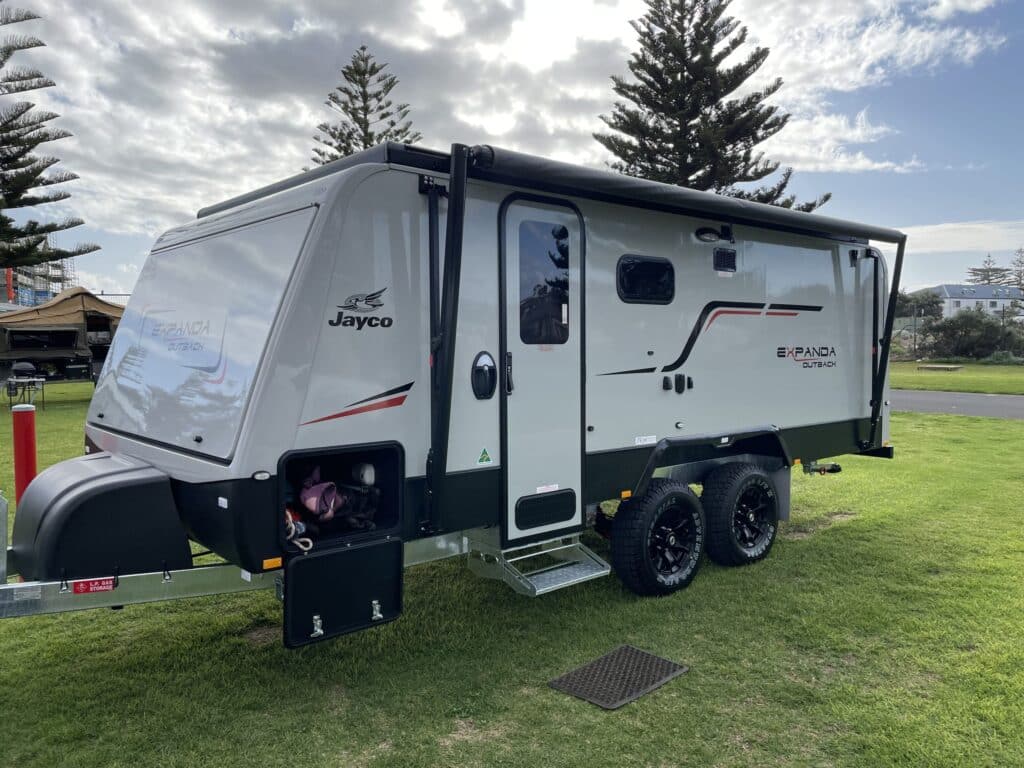
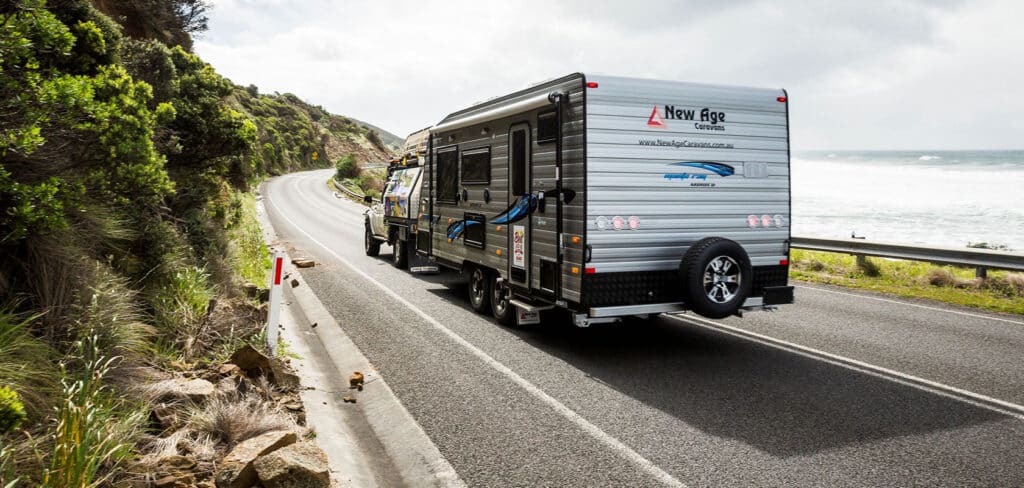
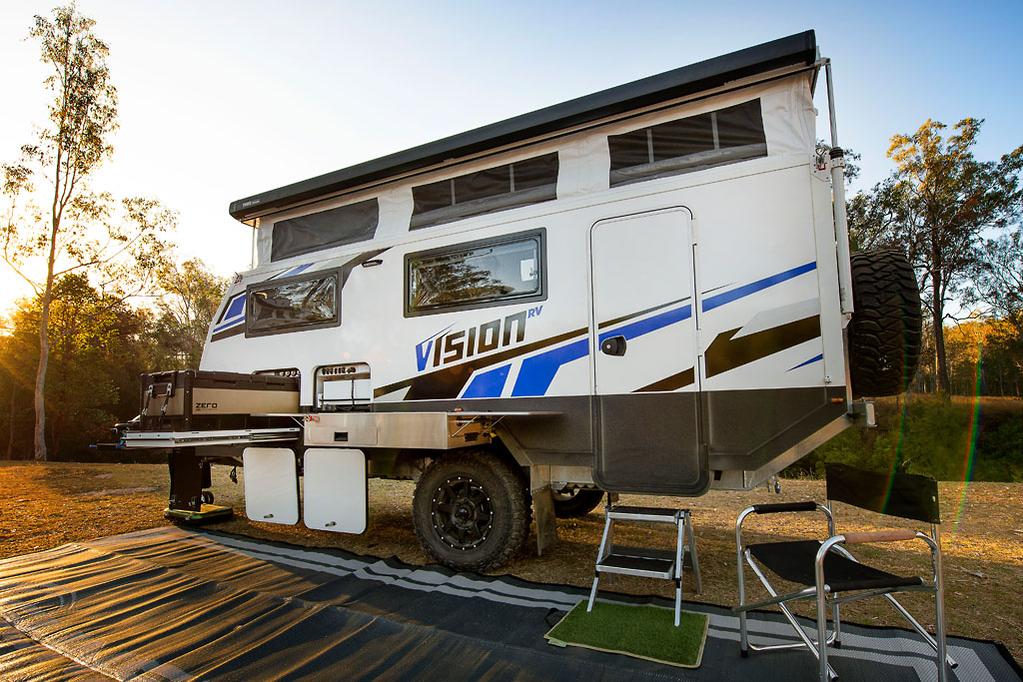
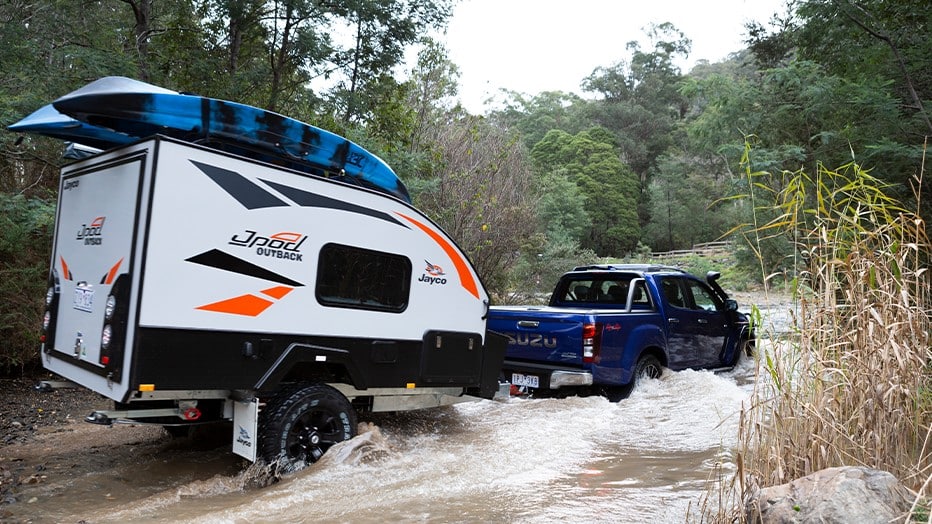
You don’t want to buy a van and then realise your car can’t tow it so as silly as this sounds we are sure it has happened before!
Some people plan to purchase a new car with their new caravan which makes sense if you are chasing a particular type of van and can accommodate the budget and the timing can work for you.
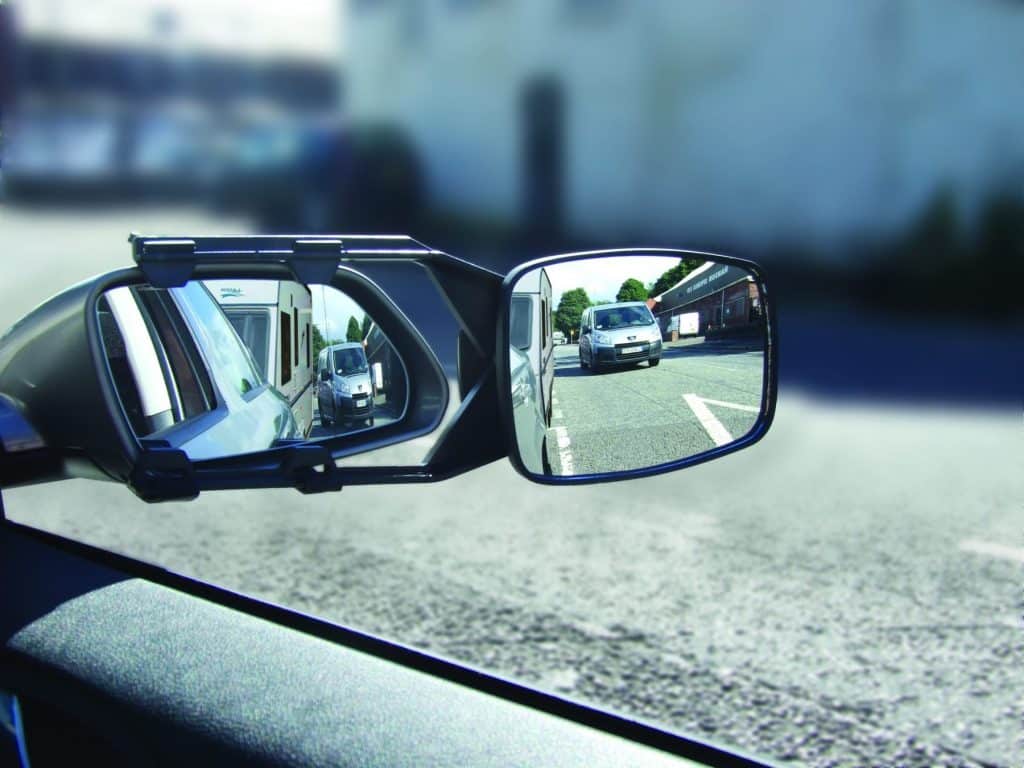

Towing Experience
What about your towing experience? It may not be the best idea to start off with a 24ft van that weighs nearly 3000kg if you are a towing novice. If towing is a concern, or if it has been a few years since you towed, consider a towing school session that will bring your skills up to speed. There are some great providers out there that specialise in just this and this could be a great investment for your skills, confidence and safety.
It is always a good idea if you are travelling with a partner on longer trips that both can tow, taking some pressure off the one driver, allowing you to travel longer distances and you will be better prepared in case one falls ill.
Family Needs
The composition and needs of your family are critical in selecting the right caravan. Different family sizes and dynamics require different layouts and amenities. Here are a few considerations to ensure a comfortable and enjoyable family adventure:
- Number of People: Determine how many people will be travelling with you regularly. Caravans can accommodate anywhere from 1 to large groups, so ensure you have ample sleeping space and seating for all. An outdoor setup and outdoor table and cooking facilities can help with this or even an annexe for longer stays.
- Ages of Travellers: Consider the age of your fellow travellers. Families with small children might need sleeping arrangements that can be adapted to changing needs, while older travellers may prioritise comfort and privacy. Height, and weightage, personality and expectations can play a role so it isn’t just about age.
- Pets: don’t forget about your little buddy. Where will their place be and how can they be as comfortable as possible?
- Storage Space: Travellers often require additional storage space for luggage, gear, and other essentials (and non-essentials…). Ample storage can help keep your caravan organised and comfortable.
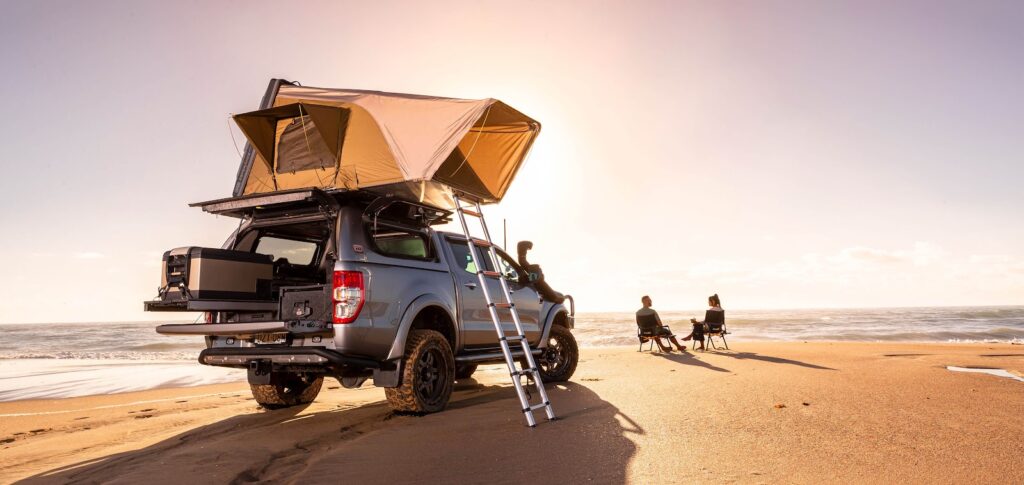

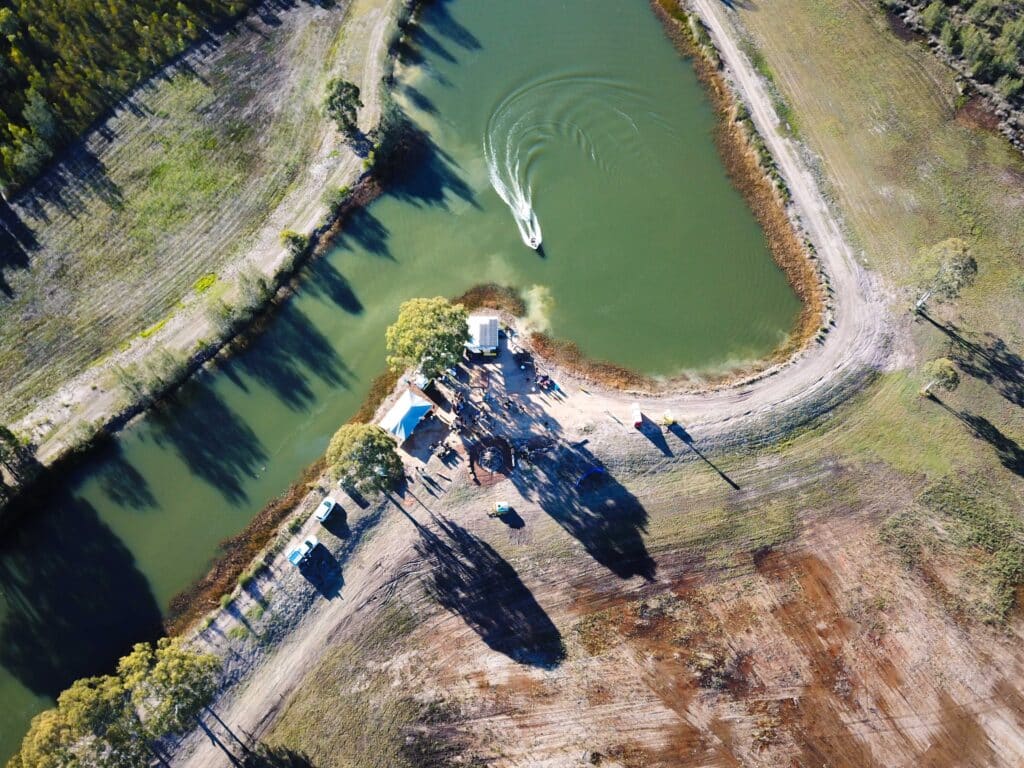
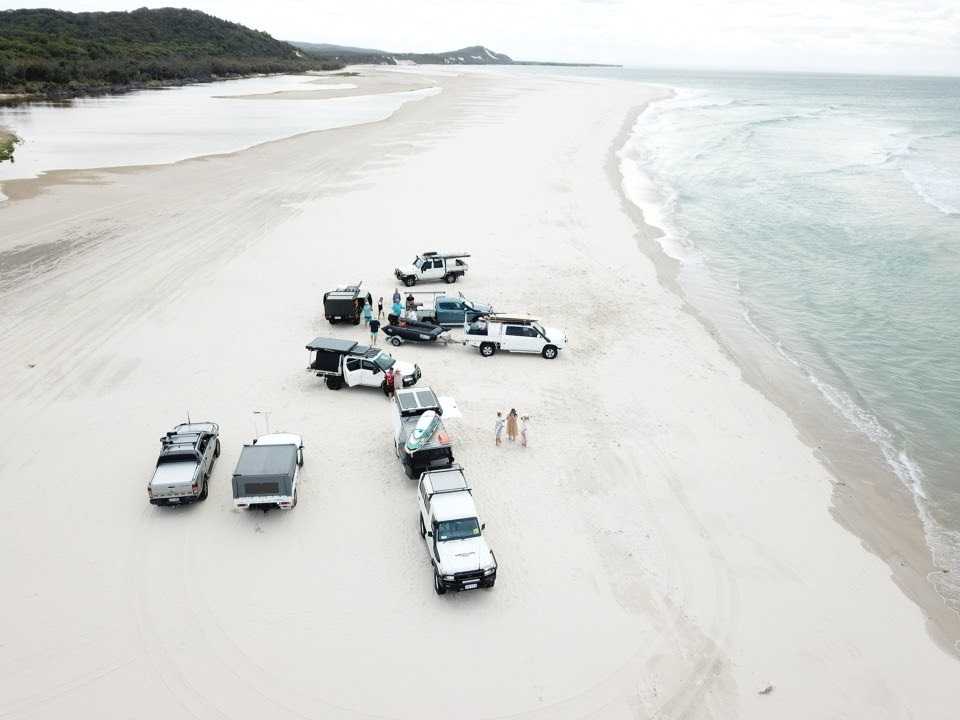
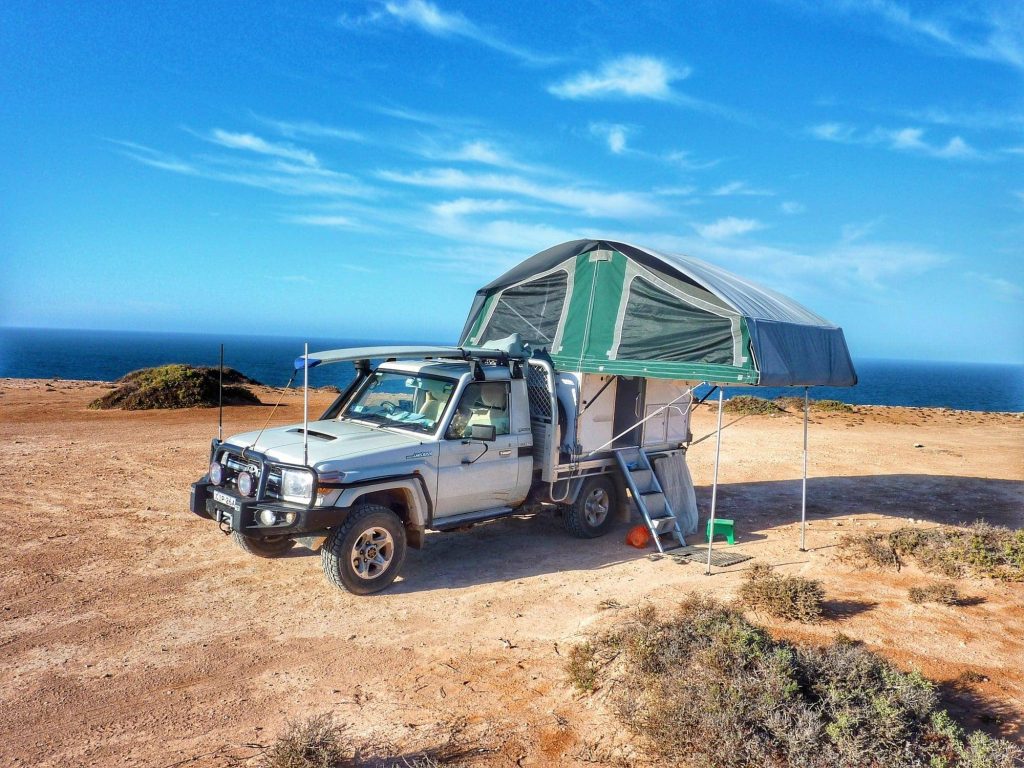
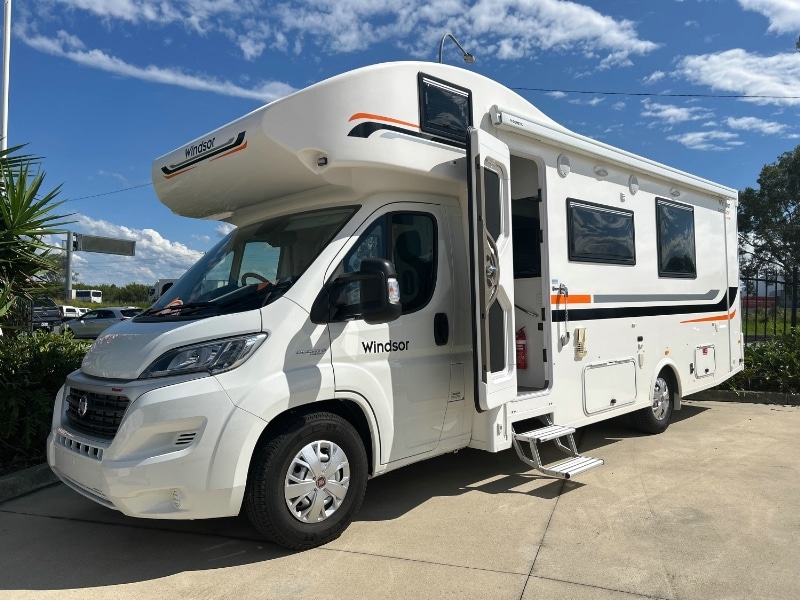
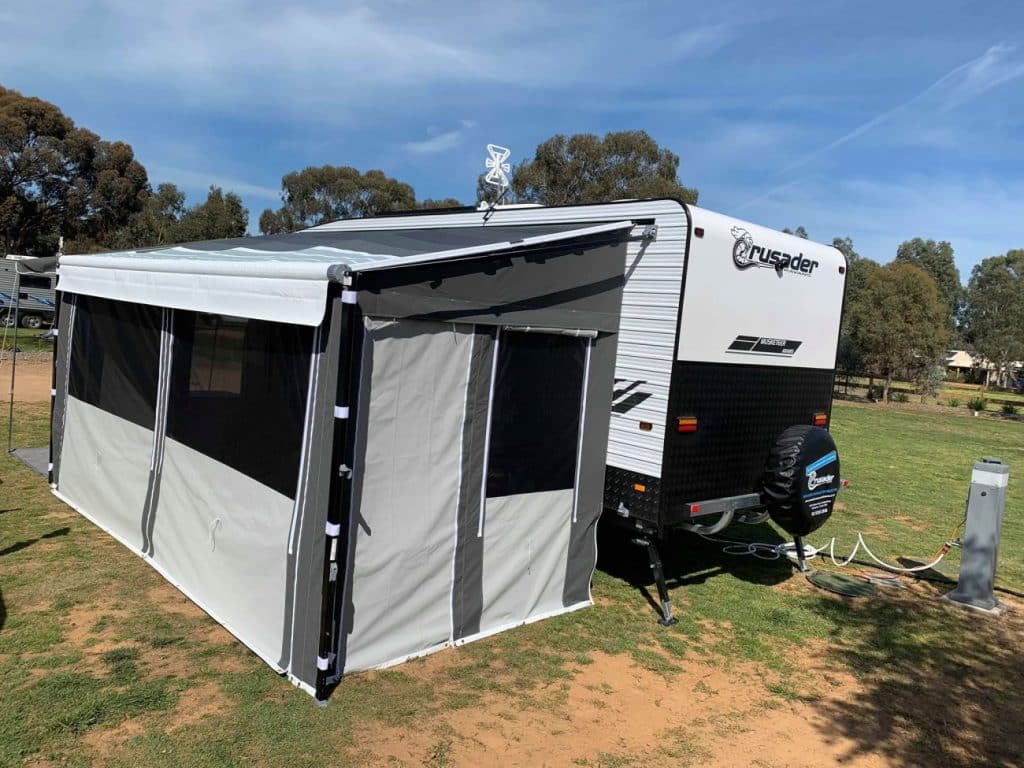
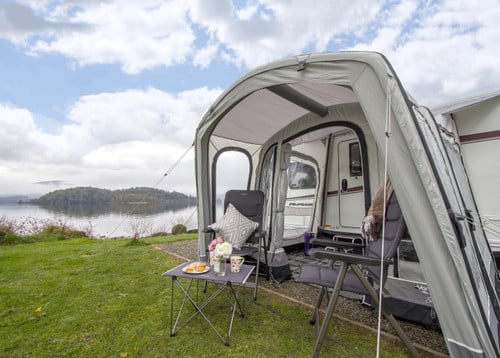
Sleeping Arrangements
Sleeping arrangements are a key component of your caravan selection. A good night’s sleep is essential for an enjoyable journey, and the comfort of your sleeping quarters can make all the difference. Here’s what to consider:
- Bed Sizes: Check the size and configuration of beds. Do you need a double bed, twin single beds, bunk beds, or a convertible/folding dinette for sleeping arrangements? Single bed vans are an option for those that prefer that at home and get a better night’s sleep. Consider resale if you go down the single bed path. Look out for the custom mattress sizes and shapes and don’t assume the sizes will be the same as your bed at home.
- Comfort: Ensure the mattresses and bedding are of high quality and provide a comfortable night’s sleep for all. It could be that you will be in the market for a bunk van that includes double or triple bunks. Some of these layouts can include a privacy screen and are generally located at the opposite end of the caravan to the master bed and opposite the bathroom. It is a great option for each bunk to have a window, a fan and a light.
Size and Layout
- One of the early considerations will be to narrow down your size range to a couple of feet. This will come down to a variety of factors including comfort, budget, towing capability, towing experience, travel plans, layout, comfort requirements and personal preferences. You might decide that 18 to 20 feet is the sweet spot and you will have your budget in mind and even a location so that will really help narrow down your search.
- Once you have looked at a few vans you will get a feel for the size and what layouts are available and you will get a feel for the size and layout that you are after.
- Layouts will vary depending on the size, vintage, budget and other factors but after looking at a few vans you will also understand your preference for windows, door location, bedroom, bathroom, dining type etc.
- Some people dislike an entry door into the bed but others love it! Some love a bathroom splitting the living area and bedroom giving a private bedroom but others think it closes in the van. The tip here is to get to a caravan show or dealership and walk through different sizes and layouts and to walk away knowing what will work for you and won’t. But be careful not to look at too many in one day or else they might all blur into one!! It is a good idea to make some notes on a plan and photo to jog your memory. You could even take a video of each and add your thoughts.
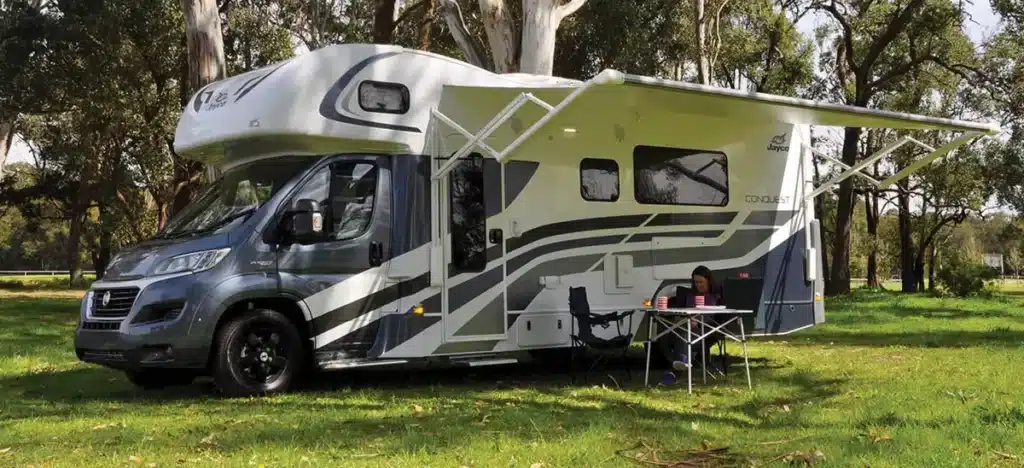
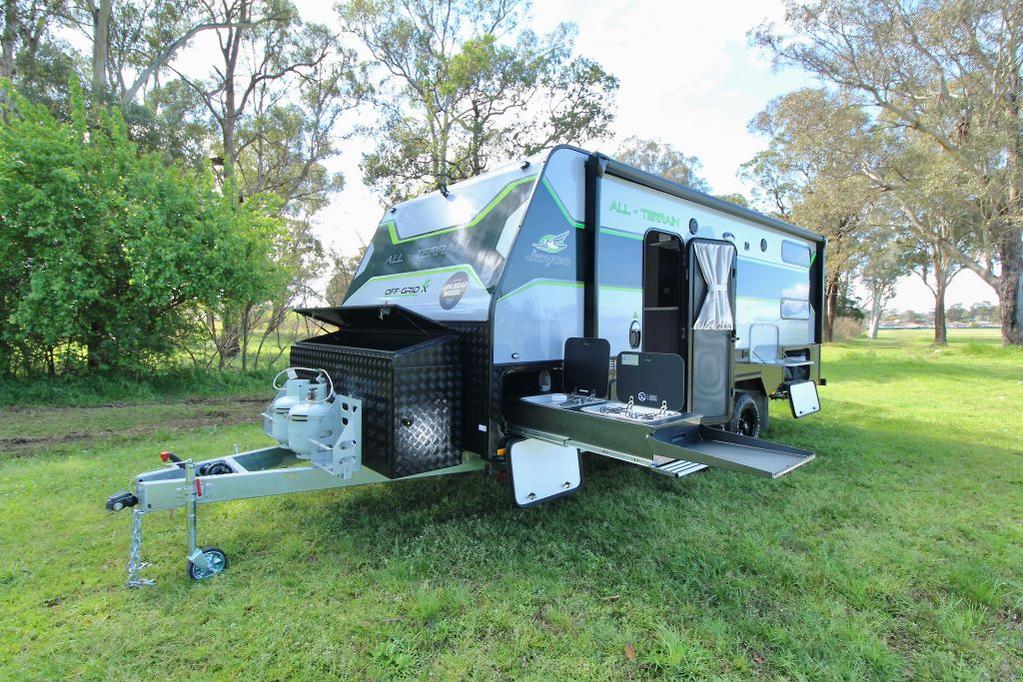
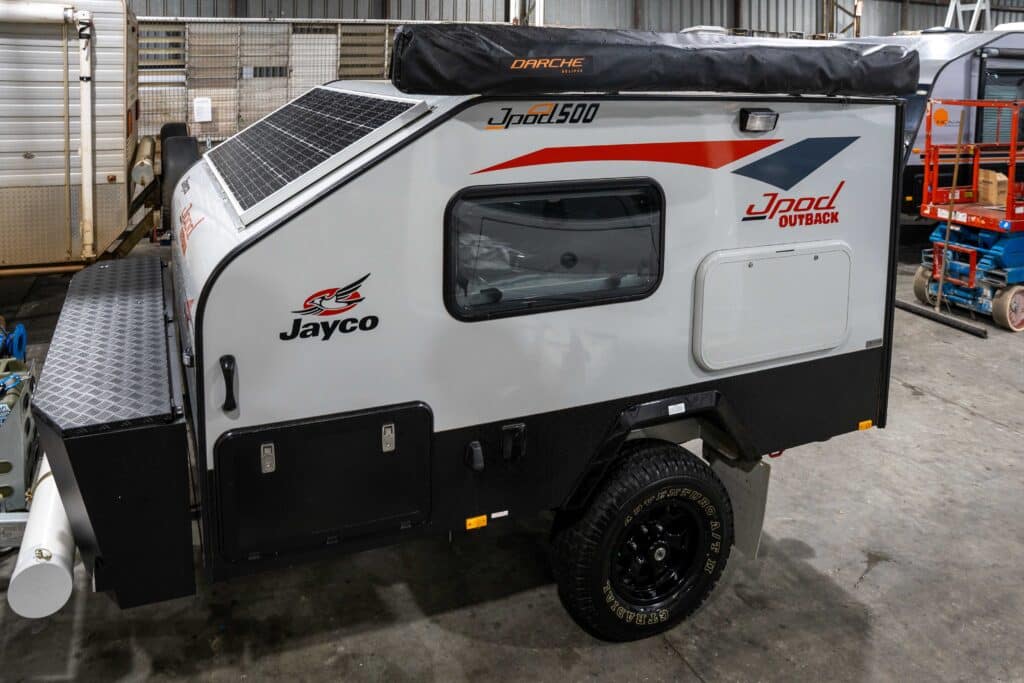
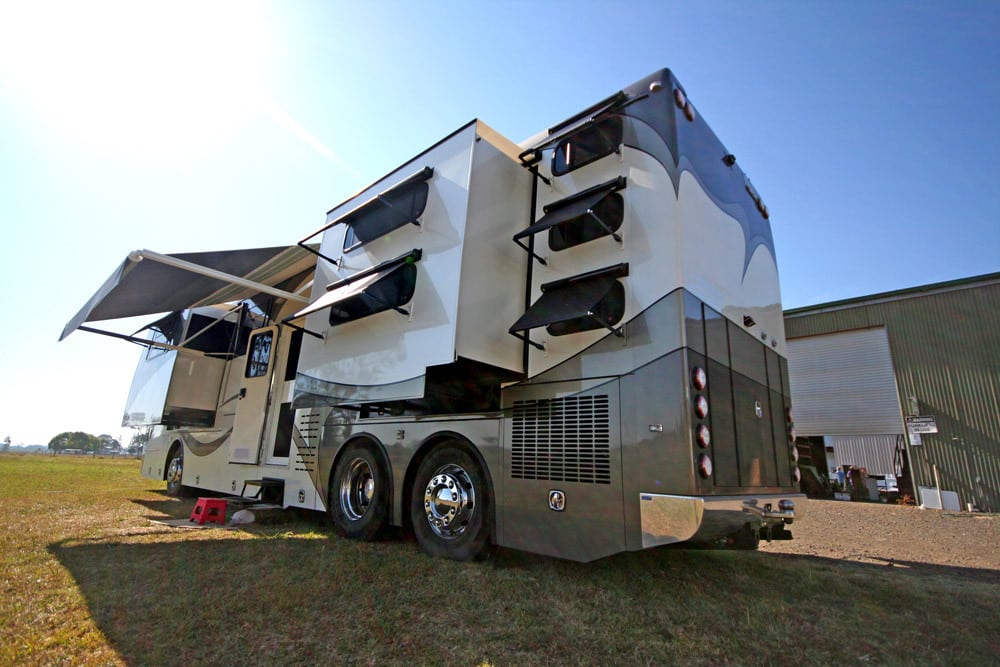
- Layout options to consider include bed orientation, dining configuration (dinette, bench, L shaped and even armchairs and foot stools!) and bathroom style and location. Something often overlooked is window location and size so keep that in mind regarding airflow, natural light, temperature and so on.
- Consider storage and access to storage, is there a place for everything you want to take with you in your home on wheels? How does the kitchen area function with regard to the cooking, storage and sink? Ideally you don’t realise on your first trip that the layout just doesn’t work for you.
- If you can’t get to a caravan show or dealership some caravan dealers and manufacturers will have floor plans, videos and 360 tours on their website or YouTube that will get you some information to get you started.
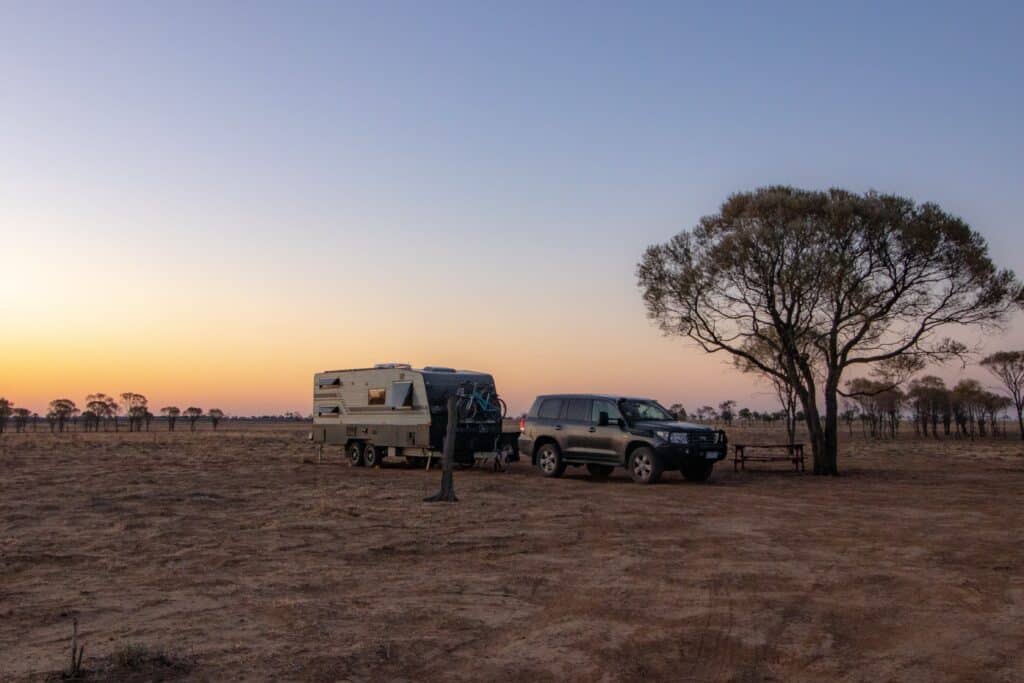
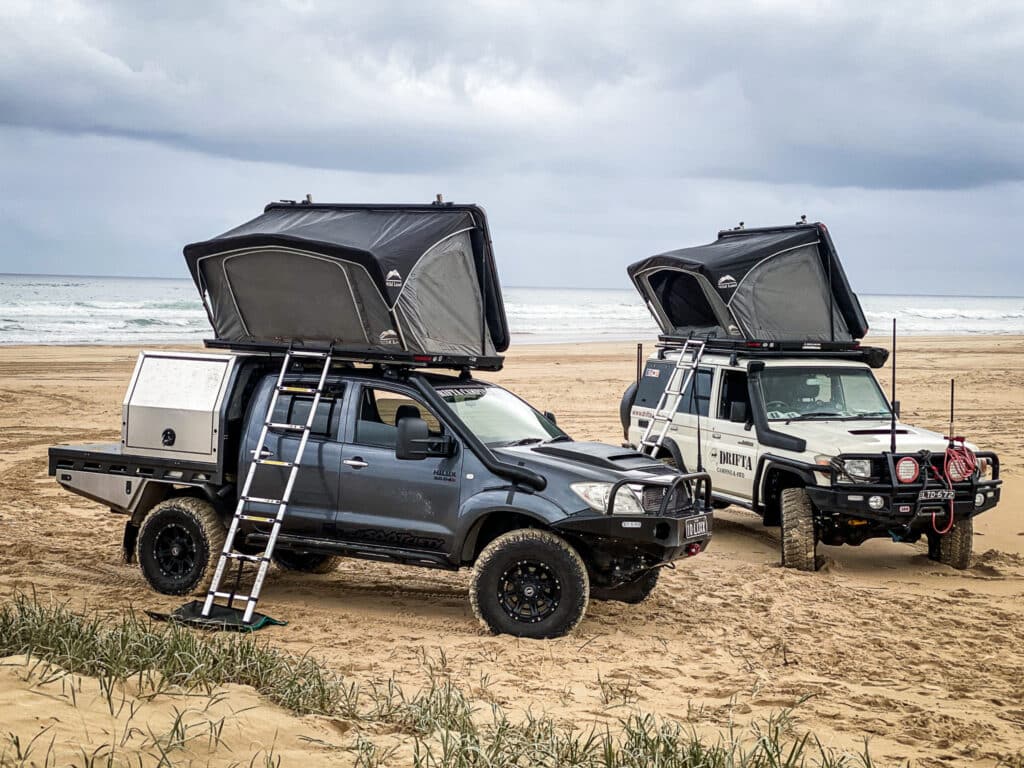

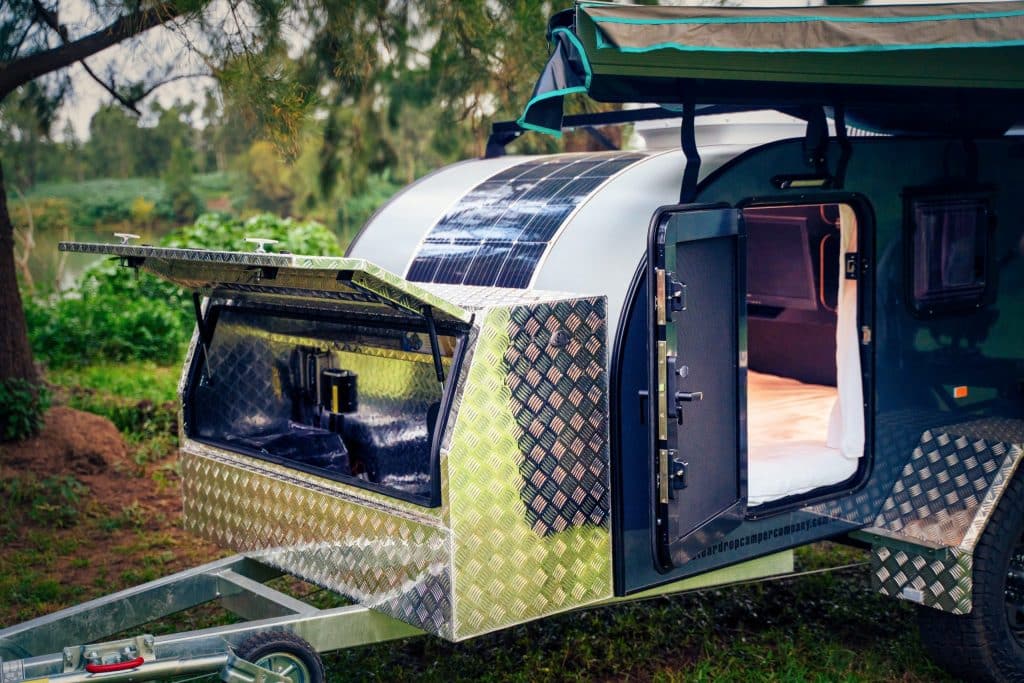
Time on the Road
The amount of time you plan to spend on the road and the type of trips you prefer will also influence your caravan choice. Australia offers a range of experiences, from short getaways to extended adventures, and your caravan should match your travel style:
- Weekend Getaways: If you’re primarily interested in short weekend trips close to home, a smaller and more compact caravan might be sufficient. Look for a caravan that’s easy to tow and set up for quick getaways.
- Extended Adventures: For longer journeys or full-time travel, a larger caravan with additional amenities and comfort features might be a better fit. Consider a caravan with a spacious kitchen, bathroom, and ample storage.
- Off-Grid: Will you be able to connect to 240v or will you need your own independent power source? If you will be going off-grid, how long will you be looking at? This will take you down the lithium battery system path so keep that in mind for your budget but it will have the upside of a decrease in relative weight amongst a myriad of other benefits.
- On-Road or Off-Road: Consider whether you’ll mostly stay on paved roads or venture off-road. If you’re planning to explore remote and off-the-beaten-path locations, choose a caravan designed for off-road travel. Further research will be required on ‘semi-off-road’ to see if that will meet your needs.
- Amenities: Determine the amenities you value most. If you love cooking, a well-equipped kitchen might be a priority. If you prefer outdoor adventures, make sure there’s ample storage for sports equipment and outdoor gear. Consider what upgrades are possible in the future like outdoor showers, external kitchens, awnings and annexes, battery and solar upgrades etc. As you do more trips, think about the benefits of additional upgrades vs purchasing another van. If biking or jet skis are your thing maybe a toy hauler is the go.
- Storage: Consider the time on the road and how much water, diesel, gas and cupboard space you will need. External hatches, tunnel boots and toolboxes should also be considered here. Any discussion about storage needs to consider weight so ensure the items you want to carry do not exceed your payload.
Construction Materials
There are a variety of construction materials used in caravans. From timber frame to aluminium frame and in latter years, full or partial composite construction. These materials can provide differences in acoustics, thermal qualities, maintenance, weather protection, repairs, weight, strength, resale, purchase cost and even insurance costs in some cases. It is good to have an understanding of the pros and cons of each of these construction materials before making your final purchase decision.
In brief, a timber frame is the traditional method and offers a good balance between weight and strength, is common and more easily repaired but more susceptible to rot and rodents due to moisture and water damage and will require additional sealing and regular inspections over time.
An aluminium frame is waterproof (some may use timber in different places in addition to the aluminium), strong and rigid, yet can be more expensive.


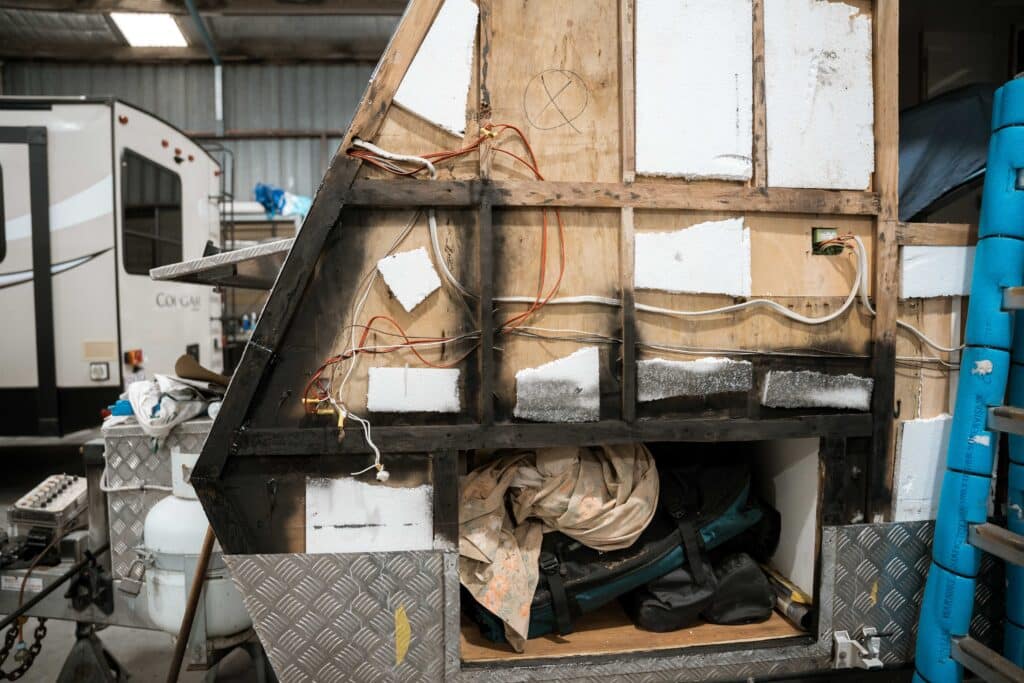
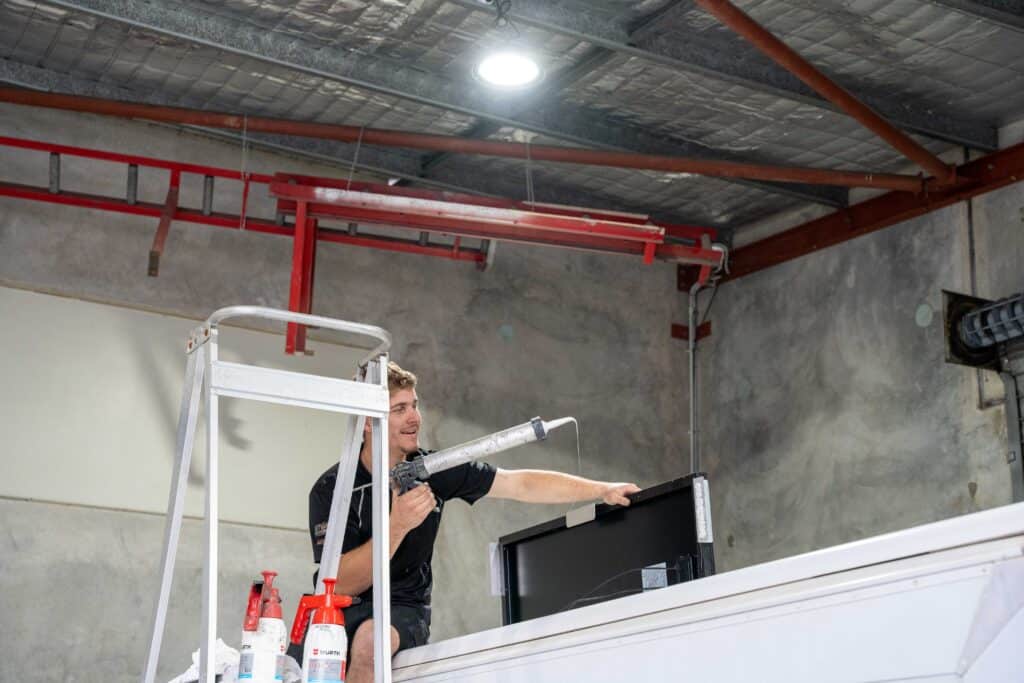
Composite or sandwich panel is the new kid on the block of caravan construction and generally includes free standing walls, flooring and roof panels that are attached during construction. The benefits of this method include thermal qualities, improved acoustics, strength, increased hail resistance, possibly lower insurance, easier to maintain and keep looking like new and lighter weight (giving you additional payload). The cons are the possibility of cracks, challenges with attaching items to the surface, more difficult repairs and potentially increased cost.
While the new option (composite construction) often gets all the attention, many of the 800,000 or so registered caravans in Australia have timber or aluminium frames so they are a large majority of the used caravan market.
Ensure that prior to purchasing any caravan that a caravan specialist inspects the construction and frame of your caravan. Remember that they work on caravans day in and day out and have probably seen it all where the average Joe might buy a van every few years. This inspection could save a lot of money and stress in the future!
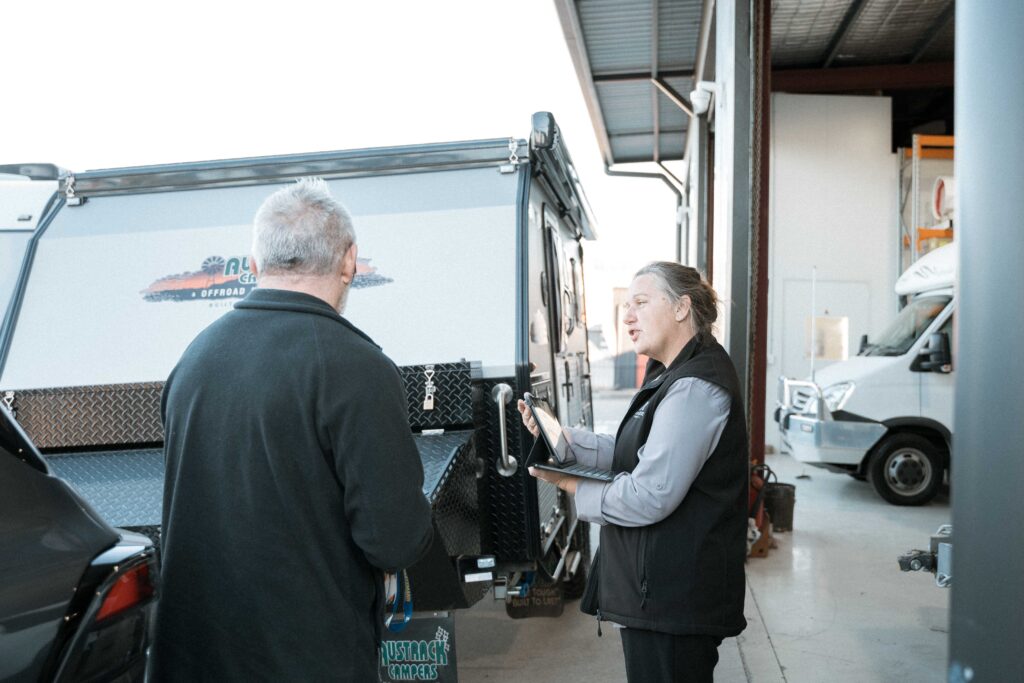
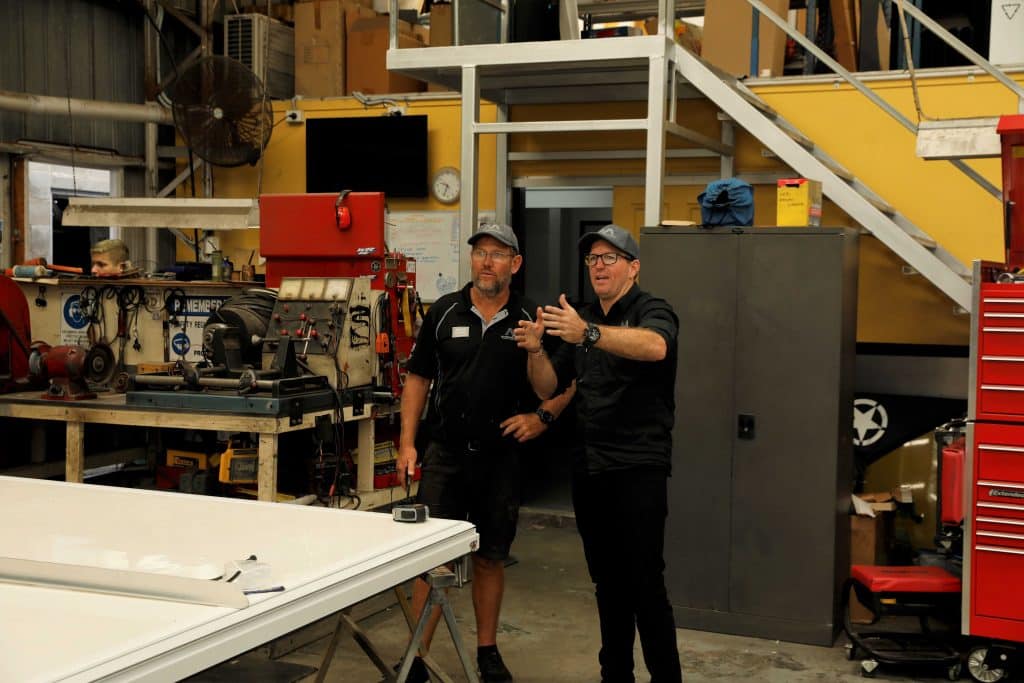
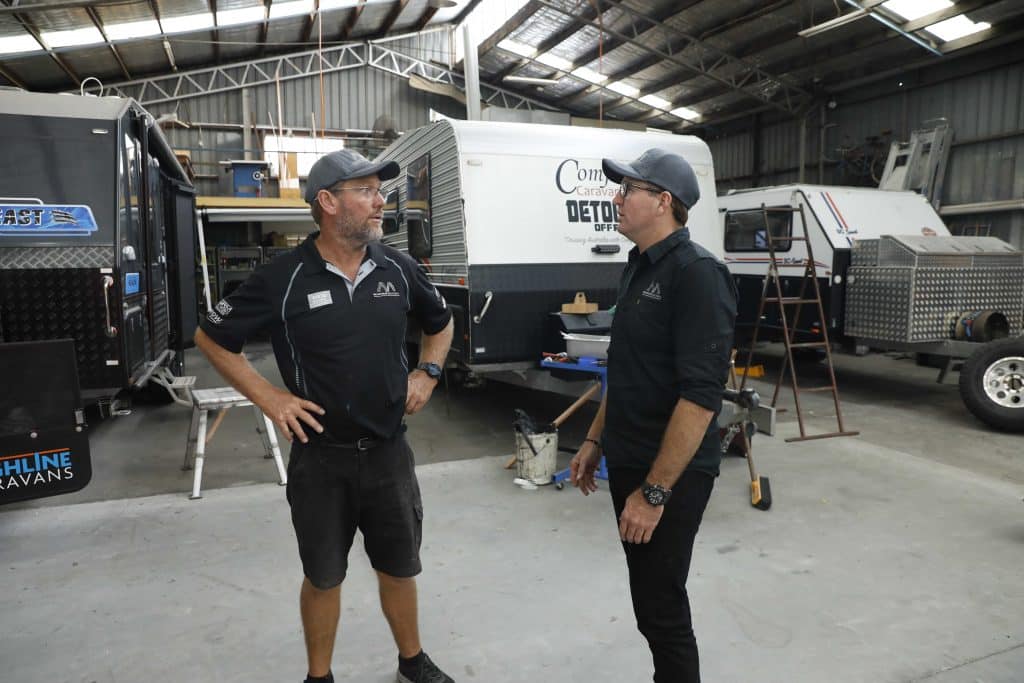
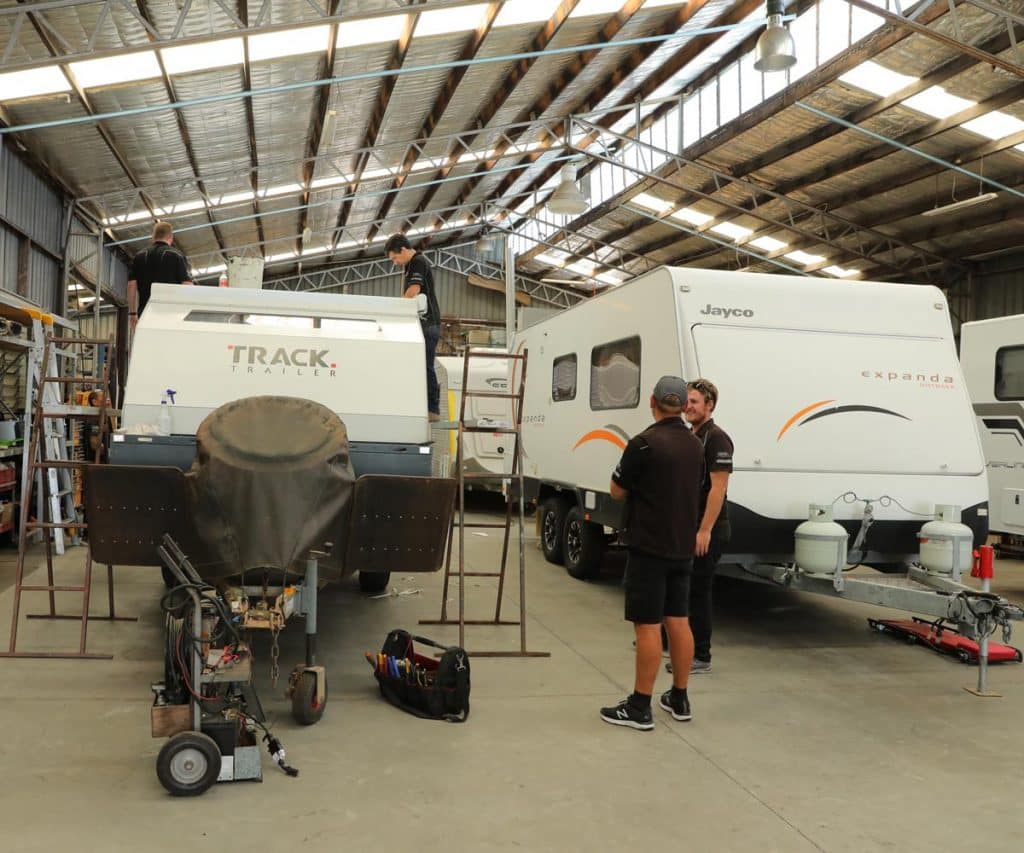
Budget
Your budget is obviously a significant factor when choosing the right caravan. Factoring in not just the purchase price but also ongoing costs like insurance, registration, fuel, maintenance (car and caravan), possible repairs, upgrades, site costs and other costs while travelling.
New vs. Used: Consider whether a new or used caravan better suits your budget. Used caravans can offer great value, but be sure to inspect their condition thoroughly. A tip if you are buying a near-van….do not assume the warranty is transferable (this is worth double checking with the manufacturer). New vans will generally cost more, may have a waiting period, will have warranty and you may have the option to customise colours, layouts and inclusions (depending on the manufacturer).
- Financing: Explore your financing options and check for any available incentives or discounts. Depending on your situation and preference you could look at using cash, a loan, redraw from your home, refinance your home or your superannuation.
- Ongoing Costs: Don’t forget to budget for ongoing expenses, including fuel, site fees, maintenance, and insurance. Consider the long-term financial impact of your choice. There is some great info out there about the cost of travelling in a caravan.
- The age old debate of locally made vs imported. We will leave this one for another day! Be aware that products can be imported but put together in Australia so there is some grey in this area.
- Like any market the caravan market fluctuates due to supply and demand and we are coming into a time where caravan manufacturers are offering discounts and add ons, new stock is on hand (or a shorter waiting period) and it is more of a buyers market. Keep an eye on caravan and camping sales and Facebook Marketplace and so forth so you get a feel for what a particular brand and model is worth.
- After a period of time in researching the market you will get a feel for what is good value and what is overpriced. When you see an overpriced van you will become the Michael Caton character in the great Australian movie, The Castle, when he says ‘tell him he’s dreamin’. But more importantly you will be able to spot a potential good deal.
Inspection/Condition
Here are some tips on inspecting a caravan:
- Condition: Inspect the caravan thoroughly for any signs of wear, damage, or potential issues. Look for signs of previous repairs, leaks, rust, or damage to the exterior and interior. Sometimes things look in too good condition. Once again, It is a good idea to have a van inspected by an independent expert. You don’t want to pay big dollars and be stuck with a lemon.
- Layout and Comfort: Ensure the layout, amenities, and overall comfort align with your needs and preferences. Step inside and imagine living in it during your travels. As a left-field idea consider lending a friends caravan or hiring something short-term. You may even be able to negotiate a trial with the buyer (no harm in asking!).
- Towing Experience: If possible, take the caravan for a test drive to gauge how it handles on the road and how it affects your tow vehicle. Test its manoeuvrability and check how it behaves in different driving conditions including the highway, if possible.
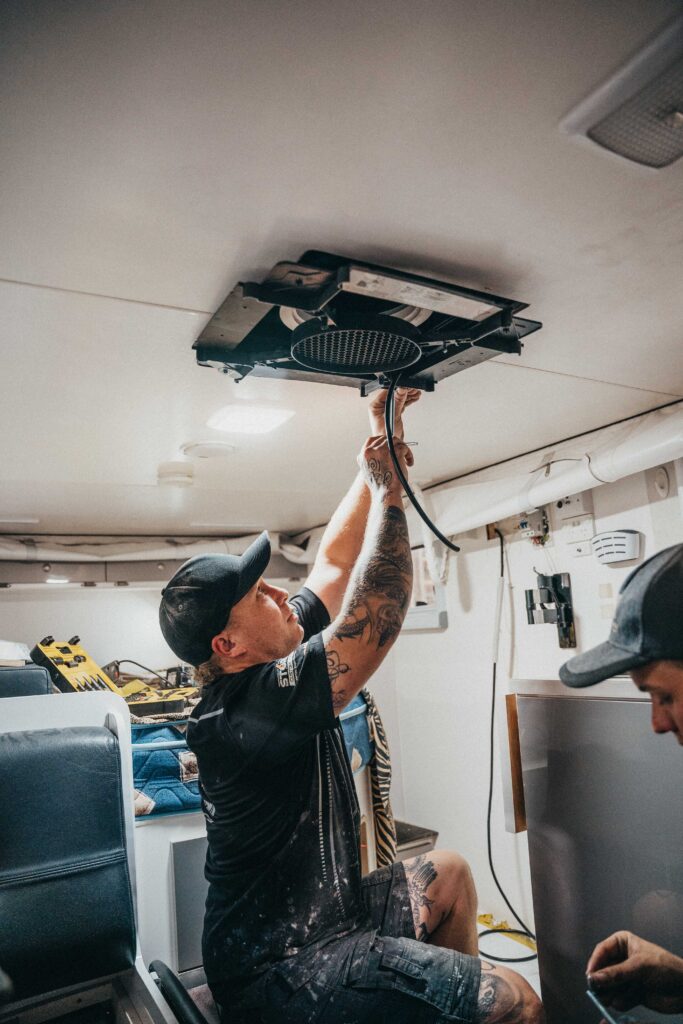

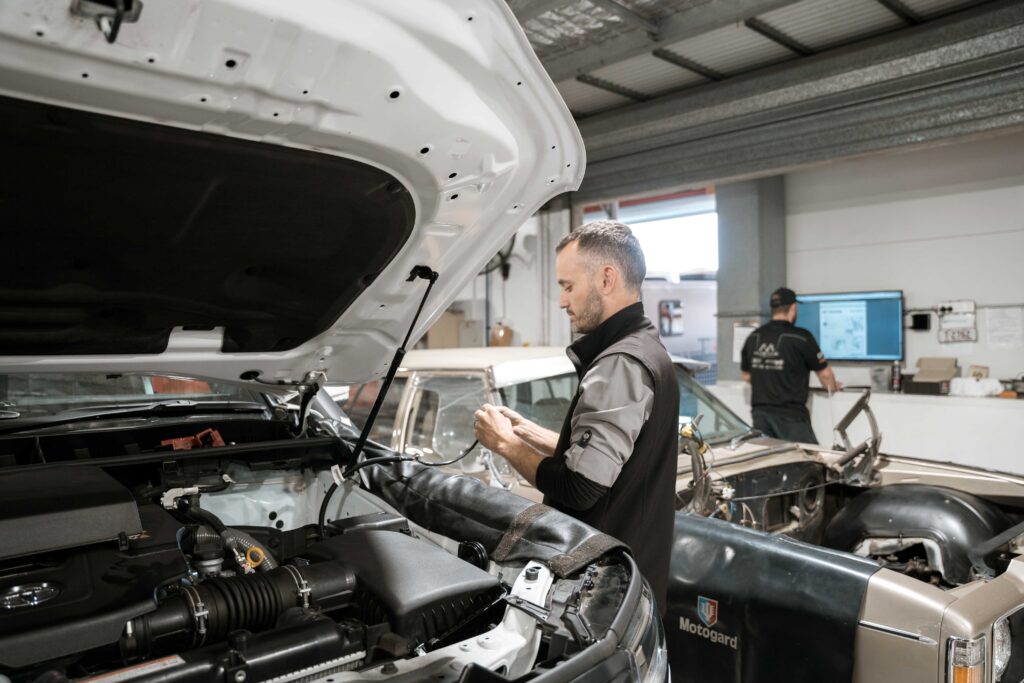
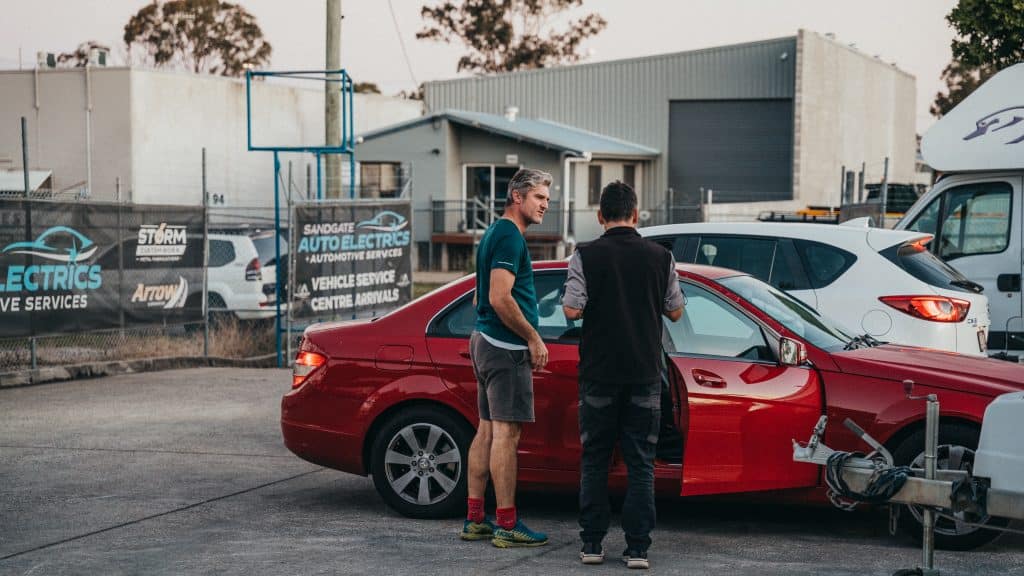
- Dealer or Private Sale: Consider whether you’re buying from a reputable dealer or a private seller. Dealerships often offer warranties, the benefits of a workshop and post-purchase support, while private sales may offer lower and more flexible pricing.
- If you are purchasing a new caravan it is well-worth the time to request a factory tour (if possible) so you can see first-hand how your caravan will be made. Some buyers even visit the factory during construction to check out their van!
If you take the caravan to a caravan specialist not only can they provide and independent inspection of the caravan, but they will also be able to give you a quote for any repairs needed (this could be used in negotiating the purchase price if you have to pay for repairs) and of course to limit the chance of any nasty and expensive surprises in the future.
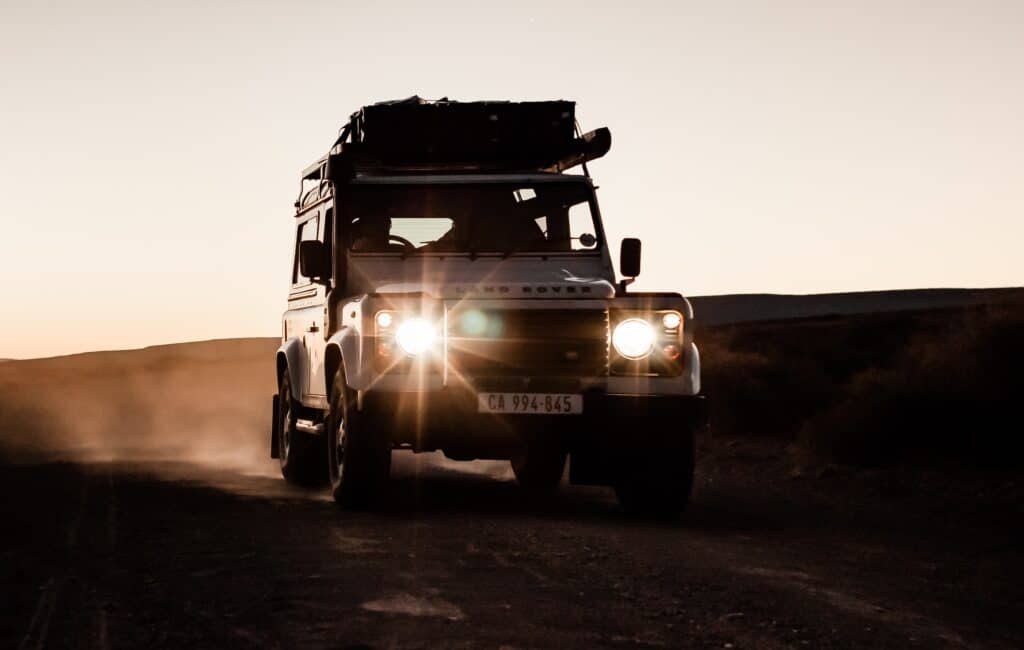
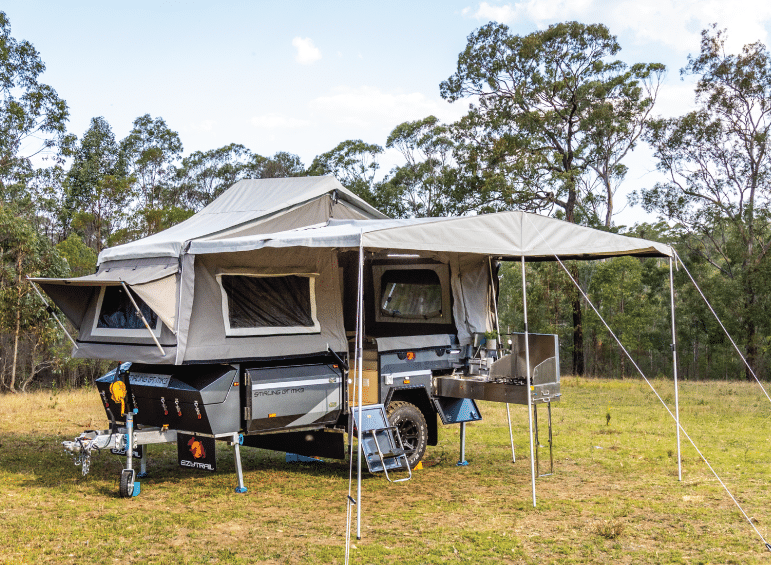

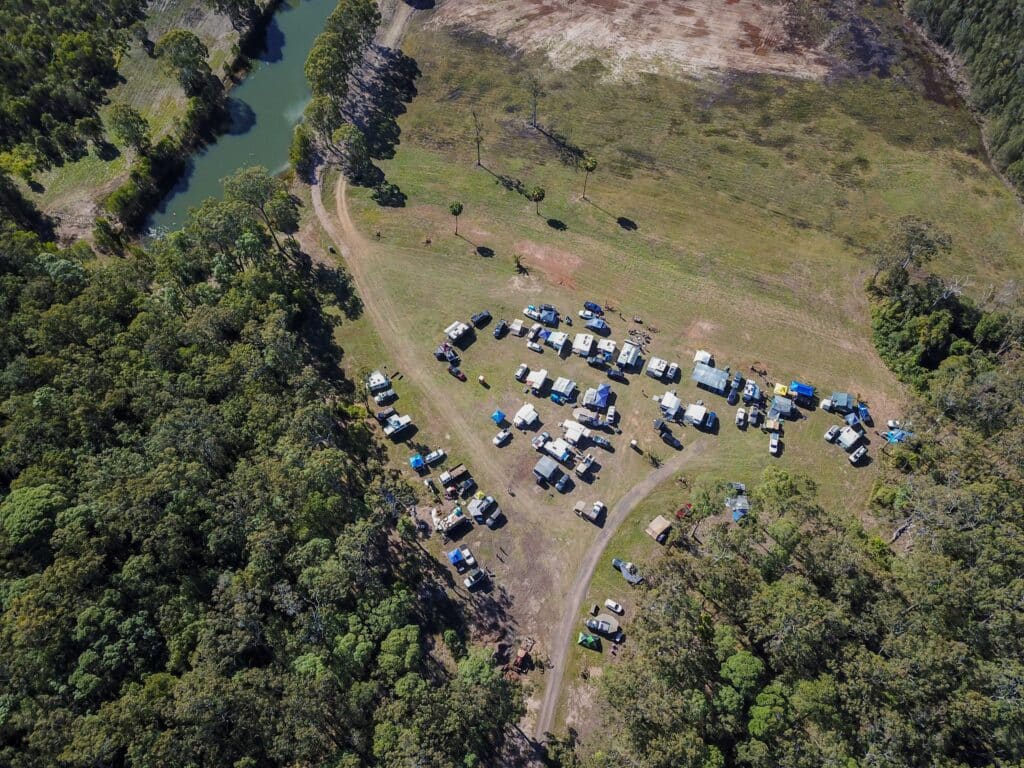
Conclusion
Selecting the right caravan for your Aussie adventures involves careful consideration of your tow vehicle, family requirements, sleeping arrangements, expected time and destinations on the road, general preferences, time frame and budget.
Give careful consideration to an independent inspection of any used caravan before inspection as a caravan specialist may see things that you miss and will be able to provide quotes for required repairs. These possible repairs could be a deal breaker. Contact us for suspension repairs and more services on our shop.
By weighing these factors thoughtfully and conducting thorough research, you can hopefully choose a caravan that will enhance your travel experiences, provide memories on the open road, provide great value and at the end of it all, great resale. Safe travels!